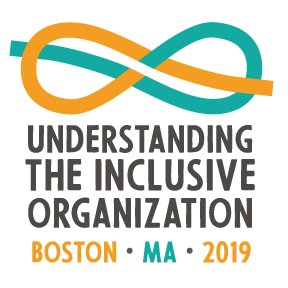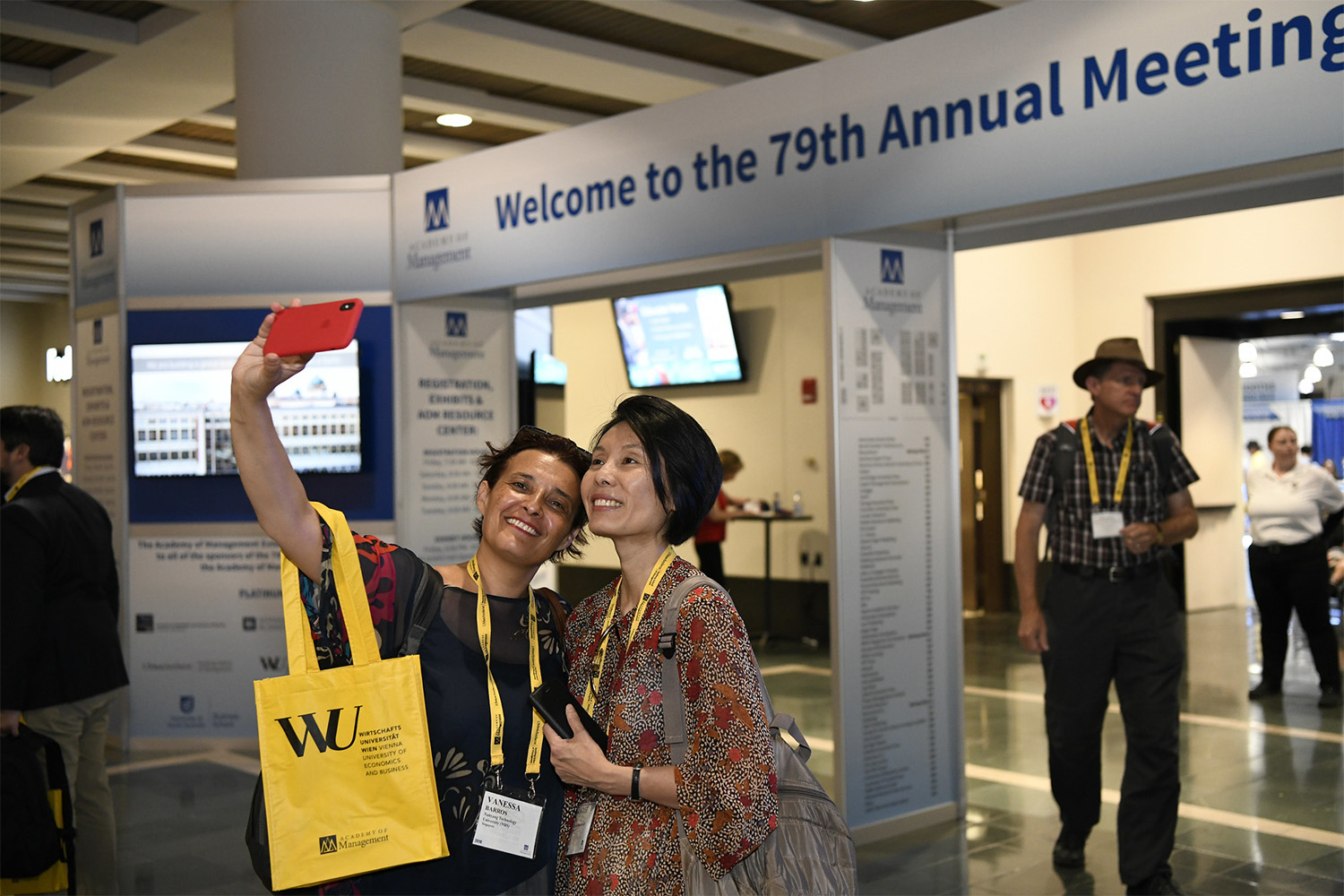AOM 2019: Understanding the Inclusive Organization
The 79th Annual Meeting of the Academy of Management took place 9-13 August 2019 in Boston, Massachusetts, USA. The vice president and program chair was Quinetta Roberson of Villanova University.
Meeting Theme

Understanding the Inclusive Organization Global trends, such as population growth, increased migration, and prolonged life expectancies, have produced compositional changes in workforces that make the creation of inclusive organizations important for engaging all employees. Yet other trends, such as continued technological advances and growing gig economy, call into question traditional notions of employment and thus, the maintenance of such organizations. These trends highlight the heterogeneity of workforces, as well as challenges around people’s sense of belonging and their ability to fully participate in organizations.
Inclusive organizations are open systems of opportunity in which all stakeholders have access to information, resources, and the capacity to fully contribute to their functioning. Driven by broad participation and equity, such systems align and make use of employees’ individual and collective talents. However, as compared to organizational assimilation or cultural isomorphism, inclusive environments incorporate the cognitive, linguistic, ideological, economic, and other diversity of individuals. In effect, all individuals and groups are valued in inclusive organizations regardless of any group membership or status.
The development of inclusive business approaches is a key goal for sustainable economic growth, as indicated by the International Monetary Fund (IMF), the Group of Twenty (G20), and other global organizations. In addition, countless organizations in both developed and developing nations, as well as across public and private sectors, call for practices and policies that drive the empowerment and contributions of all. Still, our knowledge of such approaches are relatively nascent, as the creation, operation, and consequence of inclusive organizations remain elusive to both scholars and practitioners. Accordingly, the 2019 theme invites members to understand the inclusive organization.
To gain such an understanding, several questions come to mind: What are the characteristics of inclusive organizations? Are these characteristics generalizable across cultures? How do inclusive organizations differ from porous or boundaryless organizations? What is inclusive practice? What are the effects of inclusion on employee, organizational, or societal outcomes? How do organizational structures, cultures, and/or identities contribute to, or detract from, organizational inclusiveness? How do institutional or societal contexts impact organizational inclusiveness? Do the meaning and import of inclusion differ across stakeholder groups? Are there critical perspectives on organizational inclusion that move beyond managerialism? What methodologies may be used to study inclusive organizations? How can we create more inclusive learning environments? However, as the Academy of Management strives to embrace the full diversity of our members’ backgrounds, experiences, and ideas, the questions, and subsequently our capacity, for understanding inclusive organizations are unbounded.
Since 1951, the first time our AOM Annual Meeting was held in Boston, the world has experienced critical advances and challenges while characterized by greater complexity and multiplicity. Now, more than ever, we need scholars and practitioners who can navigate and make sense of these tensions by thinking in broad and integrative ways.
Meeting Resources
4 videos related to this meeting are available.
An online photo album with 298 pictures is also available.
View the online program: Web | PDF | Program Addenda | Dynamic Edition
View the Conference Proceedings.
Read daily reports written at the meeting.
- Day 1 Recap: Launching #AOM2019
- Day 2 Recap:The Inclusive Organization
- Day 3 Recap: Women and Power
- Day 4 Recap: AI and Sustainability
- Day 5 Recap: The Black Experience
Awards and recognition
- 2019 Career Achievement Awards
- 2019 George R. Terry Book Award
- 2019 Publication Awards
- 2019 Division and Interest Group Awards
Upcoming Events
To post Call for Papers or Special Issue...

Journal of Management Studies—Property Rights Theory

Small Business Economics—The antecedents and impact of sustainable entrepreneurship

Academy of Management Discoveries—Creative Industries: Challenges and Opportunities of Digital Techn

